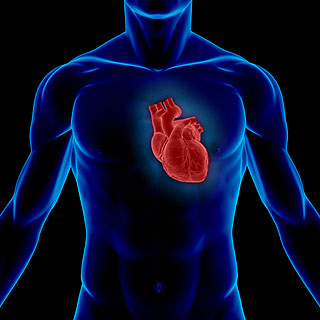Saving Your Heart
Slogging when you are tired can cause your heart to be strained. Research has revealed that tired people experience bigger spikes in blood pressure compared to those who are well rested. This is because they increase their effort to compensate for their diminished capability. When a person is already fatigued but still forces himself to work harder, there is tremendous mental stress which will raise the blood pressure and stress out the heart.
Since multitasking is the way of life, time management is important. Set realistic expectations for the amount of work you can handle in a day and invest time in exercise and relaxation. Even if you are facing a tight deadline, give yourself a breather. Set the alarm every hour to remind yourself to get up for a stretch or walk out for some fresh air. Bringing in a potted plant may also lower the stress level in your work environment. A recent study shows that people who worked in offices with plants and windows felt better about their jobs.
 Depression has long been one of the risk factors of heart disease and it is only recently that experts discovered why. Physical universal symptoms such as loss of appetite, sleep problems or fatigue are associated with the narrowing of coronary arteries. This blocks or slows the the flow of blood and can result in a heart attack or stroke. When a person is depressed, he is less likely to exercise regularly or take medicines conscientiously to manage risk factors such as high blood pressure and high cholesterol levels. Depressed patients are also likely to smoke, overeat, or binge drink-all of which are bad for the heart. It has also been proven that depression is more common in patients who have suffered heart attack or heart failure. In fact, for patients who have heart attack, the risk of dying within the next six months is increased 3 to 4 times if they also suffer from depression.
Depression has long been one of the risk factors of heart disease and it is only recently that experts discovered why. Physical universal symptoms such as loss of appetite, sleep problems or fatigue are associated with the narrowing of coronary arteries. This blocks or slows the the flow of blood and can result in a heart attack or stroke. When a person is depressed, he is less likely to exercise regularly or take medicines conscientiously to manage risk factors such as high blood pressure and high cholesterol levels. Depressed patients are also likely to smoke, overeat, or binge drink-all of which are bad for the heart. It has also been proven that depression is more common in patients who have suffered heart attack or heart failure. In fact, for patients who have heart attack, the risk of dying within the next six months is increased 3 to 4 times if they also suffer from depression.
Getting your depression treated does not prevent heart disease, but it is important to address the symptoms to improve your well being. A person who is not depressed is definitely better able to take charge of his heart health.
Cutting out salt from your diet may not be entirely a good way to prevent heart disease. This is because a very low intake of salt will actually cause some people to die from cardiac arrest. Researchers say that while high salt intake stiffens the arteries and increase cardiac muscle mass which increases the blood levels, it also brings about hormonal changes that causes hypertension. But there is no need to be finicky or avoid salt altogether. It is needed to transport nutrients, transmit nerve impulses and contract muscles. Limit your intake to 6g or about a teaspoon a day.
Cigarette smoke and chemical fumes do more than damage your lungs. Air pollution had both short term and long term toxic effects on the heart and blood vessels and to your heart. In earlier studies, inhaled pollutants were found to increase free radical levels that not only trigger inflammation in the lungs but also harm the heart and cardiovascular system.
If you have an existing heart problem, keep your workouts at the gym. If not, wait two hours after peak traffic conditions before heading out for your jog. During the haze season, if you work in a polluted environment, try wearing a mask.






